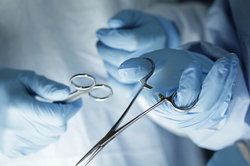Gastric Sleeve Surgery and the Risk of Gastritis
 Every patient who comes to our Tijuana practice deserves detailed information about the benefits and risks of surgery. This helps patients have realistic expectations about the treatment process. While we have discussed the many benefits of gastric sleeve surgery as a surgical weight loss option, we also feel that patients need to be made fully aware of potential complications. That's why we're looking at gastritis in this blog post, which some patients may experience after their weight loss surgery is performed.
Every patient who comes to our Tijuana practice deserves detailed information about the benefits and risks of surgery. This helps patients have realistic expectations about the treatment process. While we have discussed the many benefits of gastric sleeve surgery as a surgical weight loss option, we also feel that patients need to be made fully aware of potential complications. That's why we're looking at gastritis in this blog post, which some patients may experience after their weight loss surgery is performed.
What is gastritis?
Gastritis refers to the irritation and/or inflammation of the stomach lining. This can occur gradually (chronic gastritis) or it may happen abruptly (acute gastritis). If the gastritis goes untreated, it can lead to serious ulcers, blood loss, erosion of the stomach lining, and increased risk of stomach cancer.
Is gastritis common after gastric sleeve surgery?
Thankfully gastritis is not too common after gastric sleeve surgery. Furthermore, we always carefully monitor the health and wellness of patients in the days after surgery to monitor for potential complications, addressing any warning signs promptly so that patients have a better healing and recovery experience.
What factors increase the likelihood of gastric sleeve surgery?
There are a number of factors that can increase the risk of gastritis. These include the use of anti-inflammatory pain relievers, stress, injury to the stomach, and excessive alcohol consumption. Infections can also cause gastritis to occur. Smoking can also increase the risk of gastritis after bariatric surgery. This is just another compelling reason why you should not smoke before or after weight loss surgery.
Symptoms and Signs of Gastritis
The most common symptoms and signs of gastritis are as follows:
- Discomfort in the upper stomach area
- Fullness in the upper stomach area after eating
- Frequent indigestion
- Vomiting
- Nausea
Sometimes the above signs may not be present, so it's important that you be as attentive as possible with regard to your stomach and your eating habits.
Treating Gastritis After Gastric Sleeve
The right treatment for gastritis will depend on the nature of the patient's case. If the gastritis is the result of bacterial infection, the use of antibiotics will generally be the best treatment option to consider. Gastritis that's caused by the use of anti-inflammatory drugs can usually be treated by having patients stop taking those medications.
In addition to the above, the symptoms of gastritis can be brought under control by having patients take antacids and various medications that help reduce acid production.
How can I prevent gastritis after bariatric surgery?
To prevent gastritis after bariatric surgery, it's important that you follow all of your pre-op and post-op instructions to the letter. These provide ideal conditions for healing and wellness. In addition, we recommend the following:
- Avoid smoking and the use of any tobacco products
- Avoid consuming alcoholic beverages
- Eat smaller meals and avoid foods that trigger indigestion
- Avoid spicy, acidic, and/or fatty foods
- Consider stress management strategies
Learn More About Weight Loss Surgery Options
To learn more about gastric sleeve surgery and how it can help you achieve a more ideal weight, it's important that you contact our weight loss surgery center today. Our team will help you make the best possible decisions when it comes to your overall health and wellness, providing you with all the information you need to make a smart choice about bariatric surgery.




